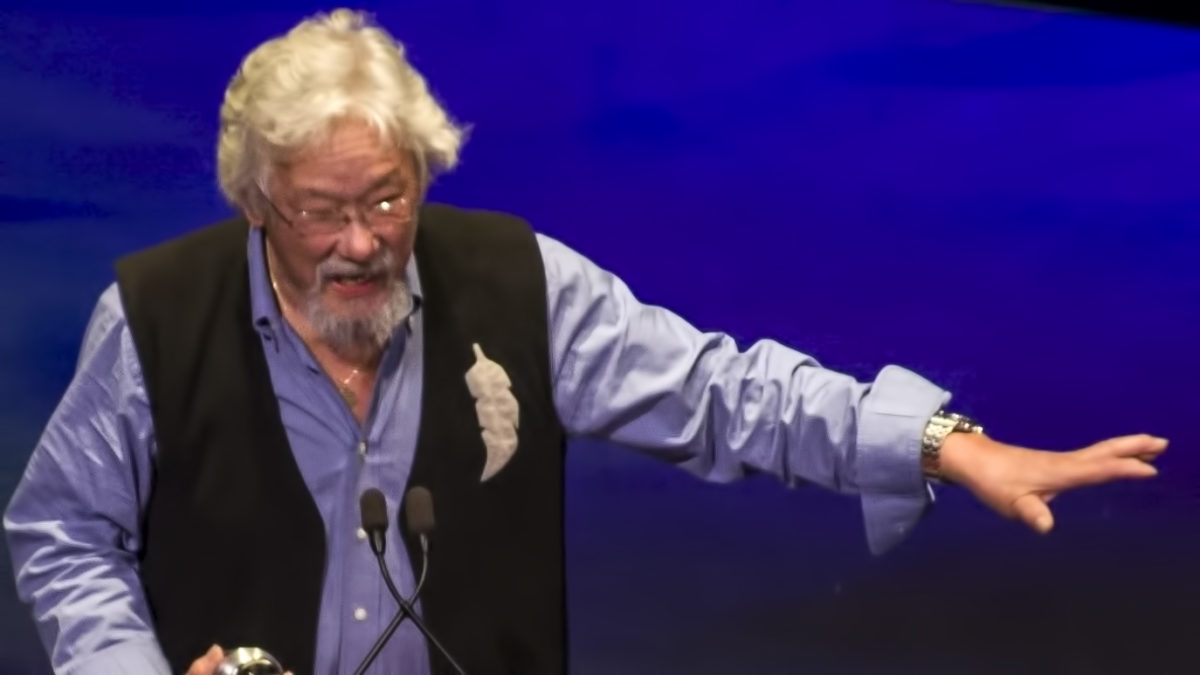
“Environmentalism has failed,” said David Suzuki during a talk Nov. 25 in Moncton. Suzuki spoke as part of an event put on by the New Brunswick Environmental Network. The event showcased a documentary titled “Climate Change in Atlantic Canada,” led by Ian Mauro and held at the Capitol Theatre with a full house in attendance.
“That’s it,” Suzuki said, regarding the work of Mauro, thanking him for bringing perspectives from “people of the land” to the climate change discussion.
Earlier in the day, members of Elsipogtog First Nation honoured Suzuki when he visited the community to show support for shale gas protesters. In response, Suzuki threw out his prepared speech, favouring a commentary on the environmental issues Atlantic Canada is facing.
He said environmentalists are fighting the same battles they “celebrated as victories” 30 years ago. He sees the movement as having failed for not shifting the paradigm from one where “the economy is the dominant factor, which we [environmentalists] have to fit into.”
St. Thomas communications student Ashley Brooks thought Suzuki was spot on.
“Suzuki acknowledges what the rest of Canada fails to, that the indigenous people of Canada have preserved this land, and because it is our cultural practice to preserve the land, why wouldn’t we be the first to step up against potential destruction?”
Suzuki compared the difference in views between settlers and indigenous peoples.
“We buy it (land), we move onto it, we exploit whatever is there, we develop it, we sell it and we move away.”
He said even environmental groups have “exploited First Nations” in the past by manipulating land usage rights to prevent development of an area.
It’s not always exploitation though. Often the indigenous people stand on their own, such as with the shale gas protests, he said.
“The indigenous people are leading the battle, because they’ve got something we don’t have. They’ve got that hard run, long indigenous knowledge, which we don’t have,” Suzuki said.
Brooks agreed.
“I feel that protection of our lands is our duty, the fight against shale gas needs to continue to be acknowledged and supported by even more Canadians if we intend on making a lasting impact,” she said.
